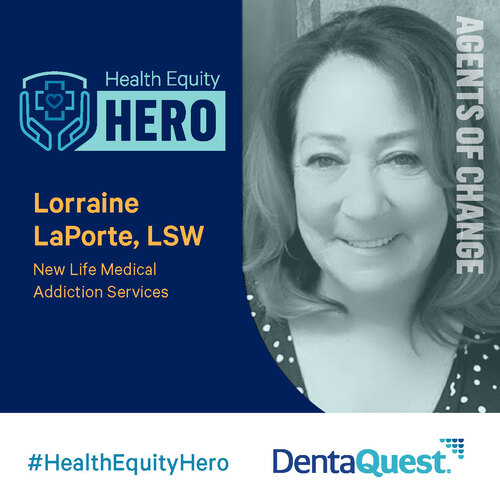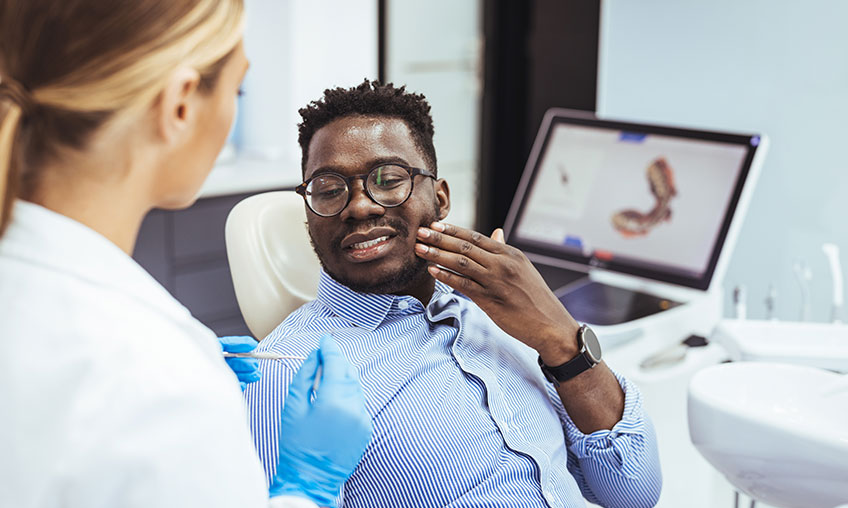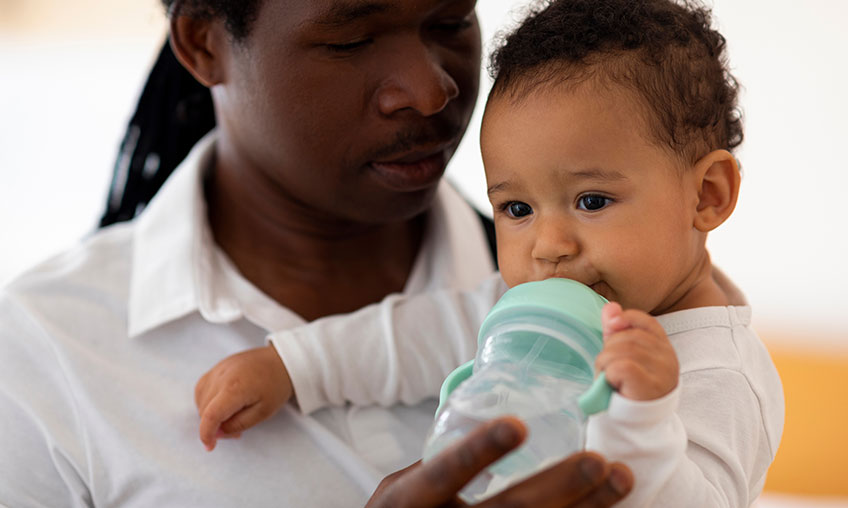 Lori LaPorte’s personal and professional life has revolved around the issue of substance use disorder. Like 20 million individuals in the United States, LaPorte suffered from substance abuse for over 15 years resulting in personal hardships and health consequences, including incarceration and poor oral health.
Lori LaPorte’s personal and professional life has revolved around the issue of substance use disorder. Like 20 million individuals in the United States, LaPorte suffered from substance abuse for over 15 years resulting in personal hardships and health consequences, including incarceration and poor oral health.
During her journey to sobriety, LaPorte learned how impactful teeth are to self-esteem, overall health and the ability to secure work. As of now, oral health care is not part of recovery for those suffering from substance use disorder, but LaPorte is working to change that. She is a social worker and wellness advocate, and recently partnered with The National Council for Mental Wellbeing to create a framework for integrating and coordinating oral health and mental health care within treatment programs.
We’re proud to honor LaPorte as a 2022 DentaQuest Health Equity Hero. Here, she discusses her journey and why it’s critical for oral health to be part of substance use recovery.
Your journey to becoming a social worker and substance abuse counselor is incredible. Why were you inspired to follow this career path?
My journey to becoming a social worker was years in the making. In 2009, I was sent back to prison and made the personal decision that I was done using drugs and alcohol. What many people don’t realize is how much substance use disorder can negatively impact your oral health and how impactful teeth are to a person’s self-esteem and appearance. I was lucky enough to encounter helpful people during my early stages of recovery who got me to a place where I could receive dental care. It changed my life.
After that, I knew that I wanted to help people and positively impact their lives. I earned three college degrees in eight years and have worked in adult mental health in many capacities — from homeless outreach work to crisis intervention and alcohol and drug abuse.
How do individuals suffering from substance use disorder receive oral health care? What happens if they don’t?
The short answer is many individuals don’t receive care. Many individuals don’t have dental insurance and choose to go to the emergency room or hospital for treatment. But, hospitals don’t treat dental issues.
When I was still using, I neglected my oral health — not only just preventive care, but necessary treatments like getting teeth removed. I’ve seen, and experienced myself, what can happen when individuals don’t have access to oral care. Infections are the most common health consequence I’ve seen, where people’s mouths are swollen, puffy and bloody. With no access to oral health care, many individuals with rotting teeth actually pull the tooth themselves, which can lead to even bigger problems.
How have you seen people’s lives changed by your intervention and work?
I’ve seen people make such incredible progress during my time as a social worker. One individual I worked with was initially very defiant in being in recovery. But, because I was able to share my lived experience, they were able to recognize my authenticity and desire to help. After initially ignoring me and fighting tooth and nail against recovery, they slowly started to find excuses to visit my office and worked hard to get out of rehab. Now, they are fully sober and restarting their life.
What I love about my job is that while I have the academic credentials to be taken seriously, my background allows me to connect with and understand people on a deeper level. To many entering recovery, I am a symbol of hope. Their life can seem so dark and insurmountable, but my story is proof that anything is possible. I’ve been in recovery for over 13 years and have not regretted that decision once.
Click here to read more about DentaQuest’s 2022 Health Equity Heroes.
 Preventistry Pulse Image
Preventistry Pulse Image
PREVENTISTRY PULSE
The newsletter designed for anyone who wants to improve oral health for themselves, their families, customers or communities.




